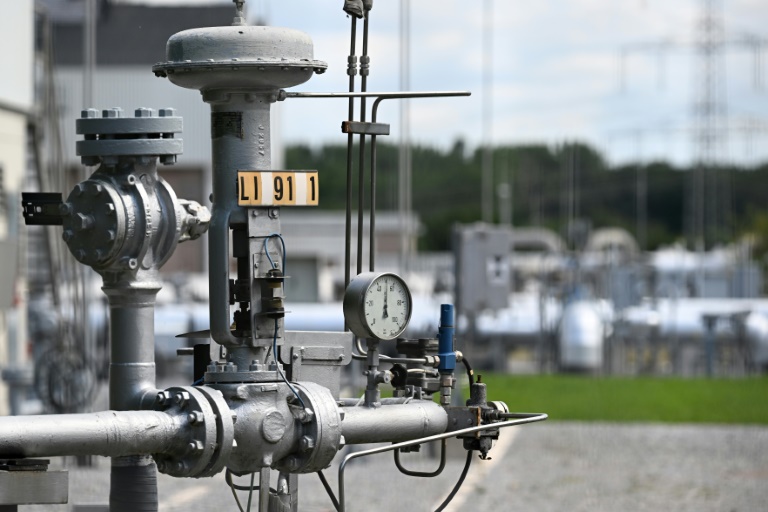Germany to fall short of gas stock targets: regulator

Germany has been struggling to fill its natural gas reserves ahead of the winter given the low level of Russian deliveries
Berlin – The head of Germany’s energy regulator said on Thursday that the country would almost certainly fail to meet its gas reserve targets in the face of a Russian supply squeeze.
“I am not counting on our achieving our next reserve goals as quickly as the first,” Klaus Mueller, president of the Federal Network Agency, told news website t-online.
He said the next benchmark — 85 percent capacity by October 1 “is not impossible but certainly very ambitious”.
“We fall short of an average level of 95 percent by November 1 in all our projections,” he added.
“There’s hardly a chance of achieving that because some storage sites started at a very low level.”
Warning of looming shortages, Economy Minister Robert Habeck outlined a series of targets last month for gas stocks to reach 95 percent by November 1 ahead of the cold German winter.
At the time gas reserves stood at about 65 percent of capacity and Germany last weekend reached 75 percent two weeks ahead of schedule.
However Mueller warned citizens of Europe’s top economy that there would be no alternative to saving energy.
“It’s not just about one winter but rather at least two. And the second winter could be even harder,” he said.
“We’ve got to save a lot of gas for at least another year. To put it clearly: it’s going to be at least two stressful winters.”
He said shortages in the cold months of 2022-23 were “probable” in some regions.
“The shortfalls will probably be temporary at first and then could stop or return repeatedly,” Mueller cautioned, meaning that gas might have to be transported to stricken regions of the country.
Germany is heavily dependent on Russian gas and has seen deliveries drop sharply amid tensions over the Ukraine war.
Gas flows dropped to 20 percent of the key Nord Stream pipeline’s capacity in July, as the EU accuses Moscow of using energy as a “weapon” in the conflict.
Household energy bills are set to soar this winter while energy shortfalls are expected to choke economic growth.
